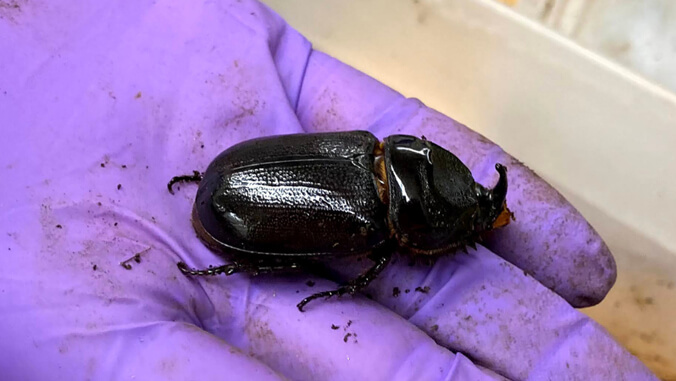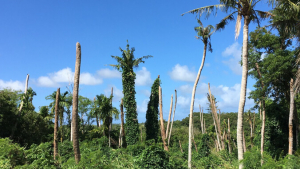
Three new public impact research papers on invasive species issues were published on the U.S. Department of Interior’s website, and the University of Hawaiʻi at Mānoa’s Christy Martin played a role in each.

Appointed in 2023 to the U.S. Invasive Species Advisory Committee (ISAC), Martin worked with her ISAC colleagues to research and produce three white papers to advise the National Invasive Species Council, focusing much of her effort as co-chair for the subcommittee that drafted a paper on how underserved communities are affected by invasive species.
The paper provides examples of how several invasive species impact different underserved communities, including Native Hawaiians and Pacific Islanders, while also pointing out the challenges of using the Climate and Economic Justice Screening Tool (CEJST) which is intended to be a guide for federal agencies to provide support, including for invasive species issues.
“As this paper illustrates, it is vitally important to support communities like Native Hawaiians, Pacific Islanders, and others that have been historically underserved,” Martin said. “However, we found that there are significant gaps in available data that preclude identifying underserved communities, much less those that are overburdened due to invasive species, and there is no regular, systematic, longitudinal data available and incorporated into the CEJST on invasive species or their impacts in different areas. Further, there are many barriers that underserved communities face, and nothing can replace the value of engaging with these communities directly to understand their needs and how best to provide support.”
There are many barriers that underserved communities face, and nothing can replace the value of engaging with these communities directly to understand their needs and how best to provide support.
—Christy Martin
The other two papers are Invasive Species Threaten the Success of Climate Change Adaptation Efforts and National Priorities of the Invasive Species Advisory Committee, 2022-2024.
As the program manager of the Coordinating Group on Alien Pest Species, a project of the UH Mānoa Pacific Cooperative Studies Unit in the College of Natural Sciences, Martin has more than two decades of experience working on invasive species issues in Hawaiʻi and the Pacific region.
The Invasive Species Advisory Committee was created by Executive Order 13112 and continued by Executive Order 13751, and consists of 12 appointed members and five non-voting advisors, from state, territorial, tribal, and local governments, as well as academic institutions, non-governmental organizations, and the private sector. ISAC white papers may be found online.


